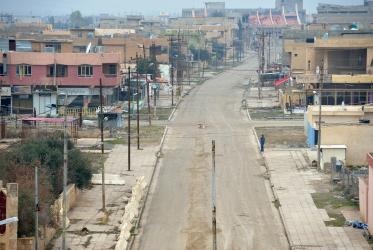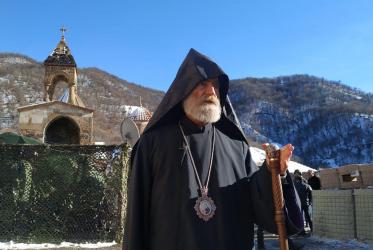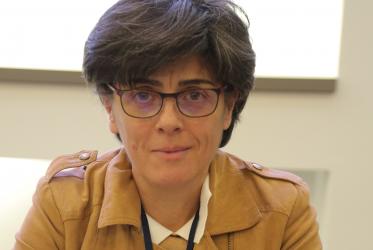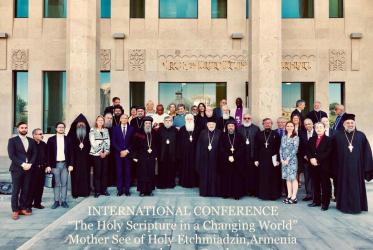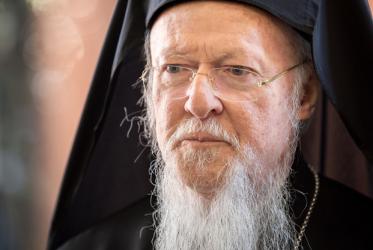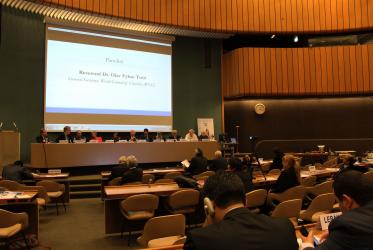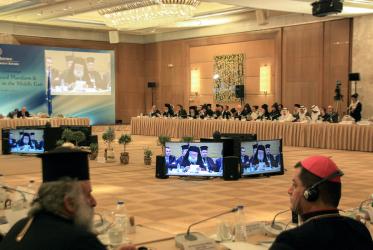Displaying 1 - 20 of 24
Hope prevails in times of crisis in Lebanon
14 September 2020
WCC well-represented in Religions for Peace leadership
07 October 2019
A moment in ‘Time’: an interreligious vision in Erlangen
20 December 2018
Romani people seek “lives of decency, dignity, and justice”
27 September 2018
"Green Patriarch" to visit Iceland
28 September 2017
Islam and Christianity: finding the common ground
16 March 2017
WCC/UN conference calls for coordinated action on refugee crisis
20 January 2016
WCC Executive Committee works toward a future of peace and justice
19 November 2015
WCC strongly condemned terror attacks
14 November 2015
Beirut bombings stir churches’ and WCC condemnations
13 November 2015
International conference addresses challenges in the Middle East
22 October 2015
WCC urges responsibility for and support to the refugees in Europe
04 September 2015
